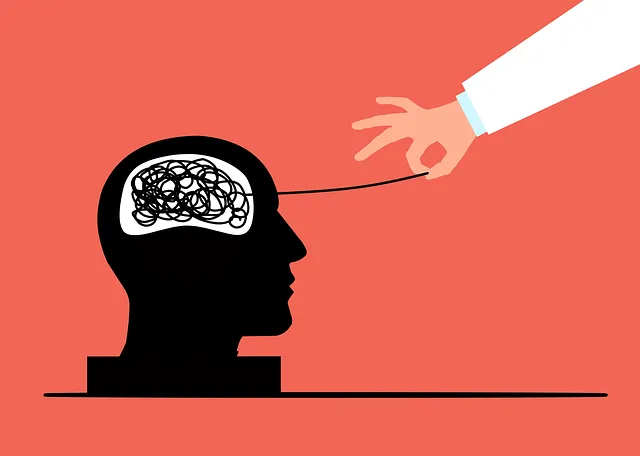The Kaiser Permanente Mental Health Access Center in Greenwood Village provides comprehensive crisis intervention services using de-escalation techniques and evidence-based practices. By focusing on emotional well-being promotion, the center equips individuals with long-term coping strategies and resilience. Early crisis identification, effective communication, and post-crisis support ensure tailored care for diverse cultural needs, leading to improved mental health outcomes. The center's holistic approach emphasizes burnout prevention and proactive workshops to empower individuals in managing stress and challenges effectively.
“In times of crisis, effective intervention strategies can make a significant difference. This article explores essential guidelines for navigating acute situations, focusing on the critical role played by institutions like the Kaiser Permanente Mental Health Access Center in Greenwood Village. We’ll delve into understanding crisis intervention, early detection techniques, communication strategies, and post-crisis support. By examining these key aspects, we aim to equip readers with valuable insights, especially in light of the vital services provided by mental health centers such as Kaiser Permanente.”
- Understanding Crisis Intervention: A Brief Overview
- The Role of Kaiser Permanente Mental Health Access Center in Greenwood Village
- Identifying Signs and Triggers: Early Detection Strategies
- Effective Communication Techniques for Crisis Interventions
- Post-Crisis Support and Preventative Measures
Understanding Crisis Intervention: A Brief Overview

Crisis intervention is a vital process aimed at providing immediate support and guidance to individuals facing acute distress or crisis situations. At the Kaiser Permanente Mental Health Access Center in Greenwood Village, professionals are trained to offer effective interventions that can significantly impact an individual’s emotional well-being. This strategy involves a range of techniques designed to de-escalate intense emotions, ensure safety, and promote healthy coping mechanisms.
The goal of crisis intervention is not only to resolve the immediate crisis but also to empower individuals with long-term skills for managing future challenges. By utilizing Emotional Well-being Promotion Techniques, the center’s staff helps clients develop resilience, enhance their problem-solving abilities, and navigate life’s stressors more effectively. This proactive approach ensures that individuals not only survive crises but thrive in maintaining their mental wellness over time.
The Role of Kaiser Permanente Mental Health Access Center in Greenwood Village

The Kaiser Permanente Mental Health Access Center in Greenwood Village plays a pivotal role in supporting the emotional well-being of residents and healthcare professionals alike. This center is dedicated to addressing mental health concerns, offering a safe space for individuals seeking help. With a comprehensive range of services, it provides not only crisis intervention but also long-term support, ensuring that those facing mental health challenges receive specialized care. The center’s expertise lies in its ability to deliver evidence-based practices tailored to the unique needs of the community.
Here, professionals employ various techniques, including burnout prevention strategies for healthcare providers, to foster a healthy work environment. They organize Stress Management Workshops, empowering individuals with tools to navigate stress and promote emotional well-being. This proactive approach not only benefits patients but also ensures that caregivers can continue to offer their services effectively, creating a more resilient and supportive network in Greenwood Village.
Identifying Signs and Triggers: Early Detection Strategies

Identifying signs and triggers is a critical step in crisis intervention. The Kaiser Permanente Mental Health Access Center in Greenwood Village emphasizes early detection as a powerful tool for preventing escalation. By recognizing subtle changes in behavior, communication patterns, or emotional indicators, individuals can intervene before a situation becomes severe. This proactive approach draws from various strategies, including heightened awareness of risk factors unique to each individual, such as past traumas, chronic stress, or underlying mental health conditions.
Effective early detection involves fostering an environment where people feel comfortable expressing their struggles openly. Compassion cultivation practices and emotional healing processes play a significant role here, encouraging individuals to seek support without fear of judgment. This nurturing atmosphere allows for the subtle cues of distress to be noticed and addressed promptly, potentially averting crises and promoting better mental health outcomes.
Effective Communication Techniques for Crisis Interventions

Effective communication is a cornerstone of crisis intervention strategies, and the Kaiser Permanente mental health access center in Greenwood Village emphasizes this as a key component to providing quality care. During high-stress situations, clear and empathetic communication can significantly de-escalate crises and foster better outcomes for individuals experiencing mental health challenges.
The center promotes active listening, where practitioners fully focus on the person’s words, emotions, and body language to understand their perspective. This technique, coupled with open-ended questions, allows individuals to express themselves freely while reassuring them that their concerns are being taken seriously. Additionally, cultural sensitivity in mental healthcare practice is vital; practitioners at the center are trained to recognize and respect diverse cultural beliefs and communication styles, ensuring inclusive and effective interventions tailored to each individual’s unique needs, including those from various ethnic backgrounds or with differing social norms.
Post-Crisis Support and Preventative Measures

Post-crisis support is a vital component of crisis intervention strategies. Following an incident, individuals often require sustained care and guidance to process their experiences and regain stability. The Kaiser Permanente Mental Health Access Center in Greenwood Village offers comprehensive resources for those affected by crises. Here, professionals provide tailored therapy sessions, focusing on trauma healing and resilience-building techniques. This aftercare ensures that individuals don’t just survive but thrive after a challenging event.
Preventative measures play a crucial role in mitigating future crises. The center promotes Burnout Prevention strategies like Mindfulness Meditation and Stress Management workshops to empower individuals with coping mechanisms. By integrating these practices into daily routines, individuals can enhance their emotional resilience and better navigate life’s stressors. Such proactive approaches contribute to creating a more balanced and sustainable lifestyle, reducing the likelihood of future crises.
Crisis intervention strategies play a vital role in supporting individuals during times of severe distress. As discussed, the Kaiser Permanente Mental Health Access Center in Greenwood Village serves as a crucial resource, offering specialized guidance and care. By understanding common crisis triggers and implementing effective communication techniques, we can foster an environment that promotes early detection and post-crisis support. These strategies not only help individuals navigate challenging situations but also contribute to long-term mental well-being, ensuring folks receive the necessary assistance promptly.






